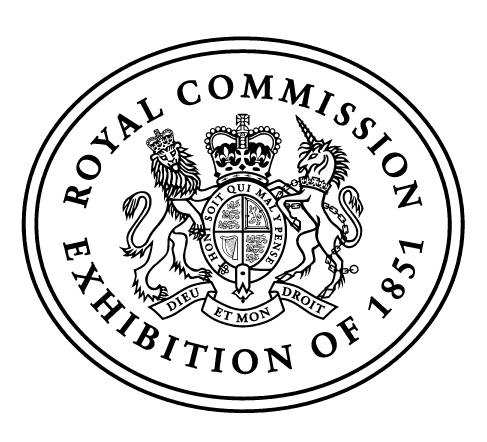Royal Commission Research Fellowships UK for Science and Technology
- UK

Royal Commission Research Fellowships UK for Science and Technology
Scholarship Description:
Royal Commission Research Fellowships UK for Science and Technology is open for . The scholarship allows level program(s) in the field of taught at . The deadline of the scholarship is .
Royal Commission Research Fellowships UK
In any of the institution of UK approved by commissioners fellowships are available for Science and Engineering. The fellowships are intended for research. These fellowships will give opportunity to scientists or engineers for early independence. The fellowship research will have to be carried out in an institution other than that where PhD research was made by the candidate. The fellowship is allowed for physical or biological sciences, mathematics, applied science, or any branch of engineering. International Students are eligible to apply for fellowship. The duration of the award will be three years. There are total nine scholarships every year. The application deadline is 18 February 2016.
Subjects Offered: Fellowships are provided in physical or biological sciences, mathematics, applied science, or any branch of engineering.
Degree Level: Research Fellowships.
Participating Institutions: Royal Commission for the Exhibition of 1851
Eligibility: -The Fellowships are open to candidates intending to conduct research in any of the physical or biological sciences, in mathematics, in applied science, or in any branch of engineering. -Candidates must be in possession of a recent PhD, or equivalent qualification (normally with no more than 3 years postdoctoral experience) or be in the final stages of their PhD studies, which must be successfully completed before the award of a Fellowship can be confirmed.
-A Fellowship will normally be held at a UK Institution approved by the Commissioners; the research should be carried out at a different Institution from the one where the candidate’s PhD research was undertaken. In exceptional circumstances the Commissioners may consider an application from a candidate not fulfilling the above criteria; requests for such exemptions should be forwarded to the Secretary as a personal letter accompanying the submission for consideration. The Commissioners’ decision, which is made after the closing date for submissions, will be final.
-A Fellow will not be debarred from holding another award or receiving other contributions towards support, but the Commissioners must be informed and may, at their discretion, modify the value of the Fellowship.
Eligible Nationalities: International Students can apply for these Fellowships.
Scholarship Description:
Do you have 3 years or less post-doctoral research experience and want to conduct innovative research of your own instigation? Research Fellowships in Science and Engineering are intended to give scientists or engineers of exceptional promise the opportunity for early independence. With the objective of contributing to the knowledge base required for a healthy and innovative national culture. These fellowships are open to all nationalities, usually intending to carry out research at a UK institution.
Scholarship Benefits: There are two possible arrangements for taking on a Fellowship:
-In the first, Fellows have the status of self-employed visiting researchers at their host institution. Fellows will receive a stipend of £32,000 for the first year, rising to £33,500 for the second and third years (subject to satisfactory progress). In addition a London Weighting of £4,000 per annum will be payable in appropriate cases. Stipends are reviewed annually and will be payable quarterly in advance, directly to the Fellow’s bank account. Stipends and any other assistance provided will be subject to taxation and Class II & IV National Insurance contributions. Fellows will be responsible for ensuring they meet their tax and national insurance obligations.
-In the second, Fellows holding their Fellowship in the UK may, where it is mutually agreeable to the Fellow and their host institution, become employed by that institution. In such cases the Commission will make a contribution (by way of grant to the host institution) towards the Fellow’s total salary costs (including National Insurance and superannuation) up to a maximum of £32,000 in the first year of the award, rising to £33,500 in the second and third years (subject to satisfactory progress). In addition a London Weighting of £4,000 per annum will be paid to the host institution in appropriate cases. The balance of the Fellow’s total salary costs (including National Insurance and superannuation), together with any other costs arising, is to be paid by the host institution. The Commission’s contribution towards total salary costs is reviewed annually 2 and will be payable quarterly in advance, to the host institution’s bank account. The host institution will be responsible for complying with tax and national insurance obligations.
-Applicants must indicate whether they wish to hold the Fellowship on the employed or self employed basis on the application form. Where applicants intend to hold the Fellowship as an employee of their host institution, they must ensure that the host institution provides the institutional approval requested at paragraph 13 below as part of the application process. Failure to do so will render the application invalid.
-A Fellow is entitled to sums not exceeding £6,000 per annum towards additional costs associated with their research, including travel to present at relevant conferences.
Notification: During the assessment process, and prior to the final selections, all candidates will be informed by e-mail whether or not they have been shortlisted. References will be authenticated and appointments to the Fellowship will be made during June 2016.
Application procedure for Royal Commission Research Fellowships UK
Application Procedure: The mode of applying is online. Applications cannot be submitted without all sections being complete, including references from two academics, neither of which should be from the proposed host institution. Referees are asked particularly to comment on the individual’s ability to undertake original research. References are submitted online via a secure portal and confidential login instructions are sent to referees by automatic email generated by the candidate during the application process.
Deadline: 18 February 2016.
Further Official Scholarship Information and Application
More about Royal Commission for the Exhibition of 1851 Research Fellowships:

The Royal Commission for the Exhibition of 1851 was established in 1850 by Her Majesty Queen Victoria to organise the first world trade fair: The Exhibition of the Works of Industry of All Nations. It was an enormous success, attracting more than 6 million visitors and made a substantial profit. When the Exhibition closed in October 1851, the Royal Commission was then established as a permanent body to spend the profits in realising Prince Albert’s ambition to “increase the means of industrial education and extend the influence of science and art upon productive industry”. To this end the Commissioners purchased 87 acres of land in South Kensington stretching from Kensington Gore to Cromwell Road. Here they aided the establishment of the Victoria and Albert Museum, the Science Museum, the Natural History Museum, the Royal Albert Hall and Imperial College as well as the Royal College of Art and the Royal College of Music. This extraordinary legacy, a unique cultural estate, became known as Albertopolis and to this day the Commission still acts as landlord for much of the site. It plays an active part in the estate and its continuing development including through the Exhibition Road Cultural Group. When this huge undertaking was largely complete, there remained sufficient funds for the Commission to set up an educational trust to perpetuate its aims. Starting with the award of Science Research Scholarships from 1891,  the emphasis switched to the support of individuals, although the Commission also made occasional awards to promote other educational ventures of national importance including the British School at Athens and the British School at Rome, the Commonwealth Institute and the National Physical Laboratory.
the emphasis switched to the support of individuals, although the Commission also made occasional awards to promote other educational ventures of national importance including the British School at Athens and the British School at Rome, the Commonwealth Institute and the National Physical Laboratory.
The Royal Commission for the Exhibition of 1851 awards some 25 postgraduate Fellowships and Scholarships a year, for advanced study and research in science, engineering, the built environment and design. It also makes a small number of Special Awards to support projects consistent with its overall aims. Many of these are focused on raising the awareness of the young to the opportunities presented by science and engineering. The total annual disbursement is some £2m a year, funded from the Commission’s investment portfolio. Report of the Board of Management 2014.
Degree Level:
Royal Commission Research Fellowships UK for Science and Technology is available to undertake level programs at .
Available Subjects:
Following subject are available to study under this scholarship program.
Achievement Scholarships for International Undergraduate Students: Engineering and Information Technology, University of Technology Sydney



